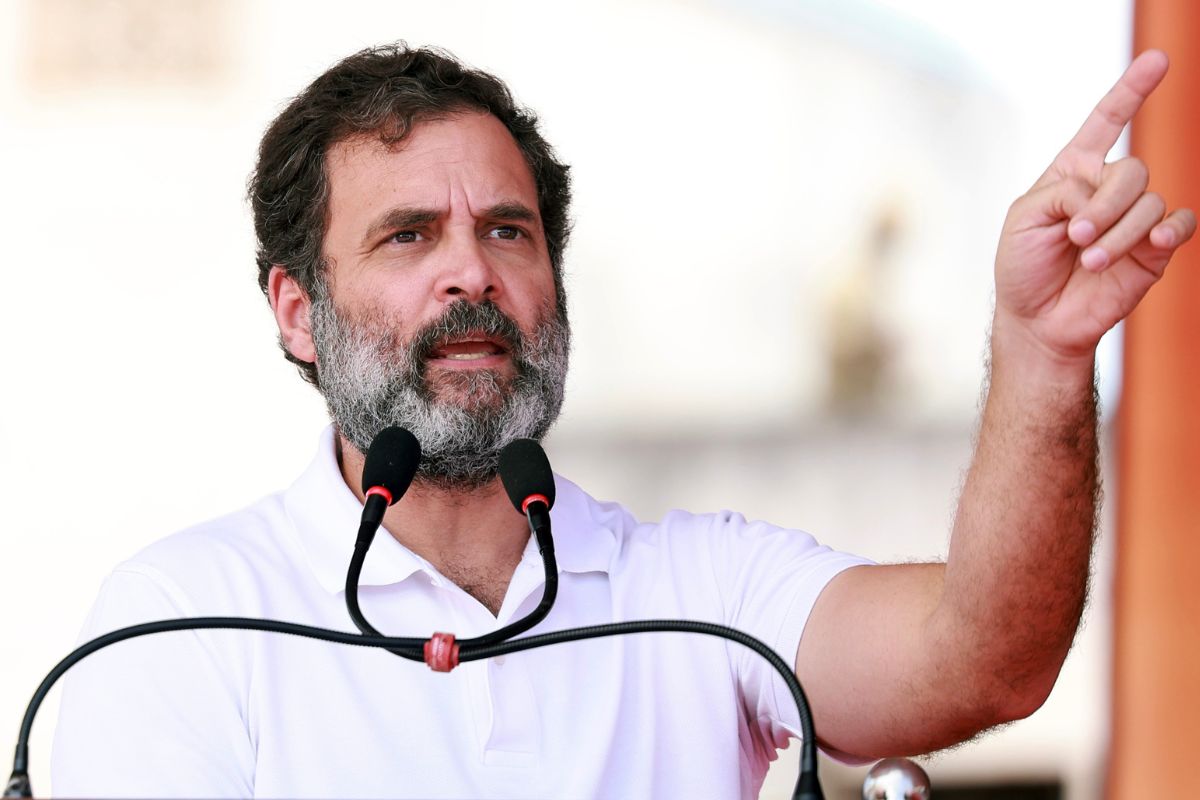Rahul Gandhi hits out at PM, Adani in Rae Bareli
Congress leader Rahul Gandhi on Friday hit out against Prime Minister Narendra Modi and Industrialist Gautam Adani on the second day of his Rae Bareli visit.
In March, the Magisterial Court had convicted Gandhi for his remarks on ‘Modi’ surname that he had made during a public gathering before the 2019 general election to the Lok Sabha.

Congress leader Rahul Gandhi (Photo: ANI)
Congress leader Rahul Gandhi on Saturday moved the Supreme Court challenging the Gujarat High Court order refusing to stay his conviction in a criminal defamation case in which he was sentenced to two years jail by a Surat court over ‘Modi surname’ remark.
After his conviction in the case, Rahul Gandhi was disqualified as Lok Sabha member on March 24 under the provisions of the Representation of People Act. Rahul Gandhi was elected to Lok Sabha from Wayanad parliamentary constituency in Kerala.
Advertisement
The Gujarat High Court had on July 7 affirmed the decision of a Surat Sessions court, which had declined to put on hold a magisterial court order on March 23, 2023, convicting Gandhi and handing out the maximum punishment provided for criminal defamation under the Indian Penal Code.
Advertisement
The Surat sessions court had on April 20 rejected Rahul Gandhi’s plea seeking a stay on his conviction by the lower court in the criminal defamation case.
In his judgement, Additional Sessions judge Robin P Mogera had cited Gandhi’s stature as a member of parliament and former chief of the country’s second-largest political party and said he should have been more careful.
Additional Sessions Judge cited prima facie evidence and observations of the trial court and said it transpires that Rahul Gandhi made certain derogatory remarks against Prime Minister Narendra Modi apart from comparing people with the same surname with thieves.
In March, the Magisterial Court had convicted Gandhi for his remarks on ‘Modi’ surname that he had made during a public gathering before the 2019 general election to the Lok Sabha.
After the magisterial court convicted Gandhi, he approached the Sessions Court, which rejected his plea for a stay on his conviction on April 20. Thereafter, he approached the High Court.
Purnesh Modi – the complainant – on whose complaint the Surat magistrate court had convicted and sentenced Rahul Gandhi to two-year jail has already filed a caveat in Supreme Court seeking to be heard as and when the Congress leader’s plea against the High Court order is taken up for hearing.
Advertisement